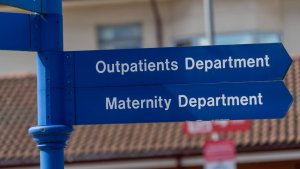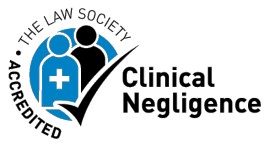Stillbirth Negligence Claims
Stillbirth Compensation Claims
Pregnancy can sometimes be fraught with difficulty and does not continue to term. It is a devastating time for the parents of the unborn child and often unexpected. One such event is that of stillbirth. If stillbirth is caused by medical negligence, we can help hold the NHS Trust to account.
Why do stillbirths happen?
A stillbirth happens when a baby dies in utero and is born dead after 24 weeks of pregnancy. If this event happens prior to the 24 week period it is known as a miscarriage or late foetal loss.
The cause of stillbirth may be related to
- Problems with the placenta
- Bleeding before or at the time of labour
- Pre–eclampsia ( this causes high blood pressure during the pregnancy)
- Cord prolapse (umbilical cord wraps around the baby’s neck or comes out of the womb before the baby is born)
- Obstetric cholestasis/intrahepatic cholestasis
- Maternal diabetes
- Genetic defect
- Infection
- Multiple pregnancies
- Restricted growth in utero
- Maternal Age
- Maternal drug; alcohol abuse
- Maternal smoking
- Obesity
- Eating uncooked meat or poultry or foods that are not to be eaten during pregnancy
Antenatal checks will be made at various times during the pregnancy and these antenatal appointments will be carefully organised. At each antenatal appointment, a midwife will carry out various tests and investigations to check the mother’s health and to ensure that the pregnancy is going to plan. Blood tests are carried out at some of these antenatal appointments, blood pressure, weight is checked and urine samples are tested. The girth of the abdomen is also checked to ensure that the baby is growing as it should.
It is usual during a woman’s first pregnancy to have up to 10 antenatal appointments. If it is not the woman’s first pregnancy she will have 7 antenatal appointments.
Scans will be carried out between 8 – 14 weeks of the pregnancy to check the estimated date of delivery of the baby. Further scans are carried out between 18 – 21 weeks to check the physical development of the baby but it cannot pick up every condition. It can estimate the size of the baby and if any conditions are found at the time of this scan then a further scan can be organised.
Other than that, the only other checks made during the antenatal period to ensure the baby is healthy is if the mother notices any changes during her pregnancy, such as reduced fetal movements after 24 weeks, vaginal bleeding, ongoing headaches, dizziness or vomiting and it is for her to alert her GP or midwife to any concerns that could relate to stillbirth. If a baby is smaller than it should be or stops growing at any point of the pregnancy this should be a significant finding as well.
If these issues are raised by the mother and no action is taken by the midwife, GP or hospital and a stillbirth occurs that could have been prevented then there is potential for a claim to be instigated by the mother.
Investigating a stillbirth
Claims relating to stillbirth can be harrowing and the parents of the stillborn child will have to relive the events leading up to and at the time of the stillbirth again. It is very traumatising and yet it is something that sometimes needs to be done so that further information can be gleaned about why the event happened. An investigation may be carried out by the NHS trust where the stillbirth occurred and answers to parental concerns will be sought.
If it can be shown that the stillbirth occurred due to negligent medical care then a claim can be investigated and pursued. Any claim must be pursued within 3 years of the date of the stillbirth. Claims outside this timeframe will be statute-barred.
It is always prudent to pursue a claim as soon as possible after the negligent medical care as the medical records, doctors’ records, nursing records and other relevant records will be more difficult to trace the longer it is since the events, especially if the treating doctor has retired or moved hospital. This also makes it harder for the Defendant to obtain witness evidence and may make it difficult for the case to be pursued.
Experienced and sensitive lawyers
At Osbornes we have acted for many families, in clinical negligence obstetric/antenatal claims and stillbirth claims. It can often be very stressful for the parents of a stillborn baby to cope with the aftermath of the injury and to deal with the litigation at the same time as dealing with day to day issues such as caring for other children they have and taking the decision to become pregnant again.
Cases involving the death of a baby can be devastating and we recognise the need to provide support and empathy as well as straightforward and sensible legal advice at such a time. We are very experienced in dealing with these types of claims.
In addition to NHS complaints procedure and the civil litigation, there is HSIB. (https://www.hsib.org.uk/)
Read this blog post for further information on Parental Bereavement Leave & Pay.
Contact us today
For a free initial conversation call 020 7485 8811
Email us Send us an email and we’ll get back to you
Stephanie Prior is head of the clinical negligence department at Osbornes Law. She acts on a wide range of issues, including claims for brain injuries sustained at birth and delays in diagnosis. She frequently represents clients in fatal claims involving surgical error.
"Stephanie Prior is the leading spokesperson on the high profile maternity scandal cases involving many NHS Trusts."
Stephanie has developed a particularly strong reputation for her handling of birth injury claims, as well as cases concerning surgical negligence and delays in surgery.
Stillbirth Claims Insights & Client Stories VIEW ALL
- 8.9.2022
Poor interpretation of CTG can result in stillbirth...
Poor interpretation of a Cardiotocograph, more commonly known as a CTG, is a leading cause of stillbirth and brain injuries...
Read more - 23.2.2022
Women from ethnic minorities experience worse maternity care
It has been reported today that the government has set up a new task force to look into why there...
Read more - 1.7.2021
Stillbirth following water birth at home
Nicholas Leahy acted for a young woman who had a water birth at home and two midwives were allocated to...
Read more - 13.10.2020
Parental Bereavement Leave & Pay
Leave and pay when a child dies Pregnancy and childbirth can be very exciting but anxious times for both parents. ...
Read more - 20.10.2014
Can Stillbirths be prevented?
It has been reported in the press that as many as half of stillbirths in the UK could be prevented...
Read more












